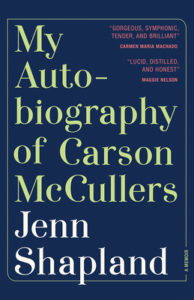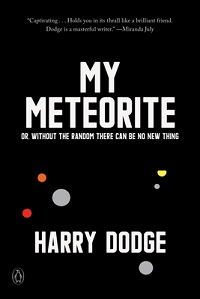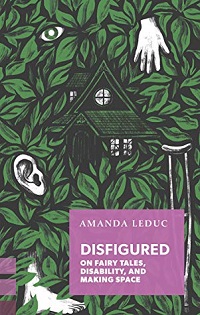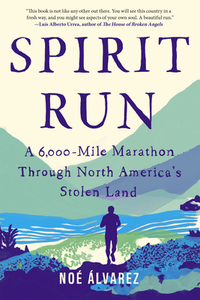In most years I read more fiction than nonfiction, but I usually find that the books that moved and inspired me the most are the nonfiction ones. I’m drawn to memoir and essays where I can feel an author trying to make sense of their lives and the world at the same time—books that are personal but not ONLY personal. I love books where there’s a strong sense of the author’s presence, reaching out to some part of the world to find new ideas and new forms.
Below you’ll find five recent nonfiction books that I loved. Each one has something new and vital to say, whether it’s about immigration, race, gender, sexuality, art, disability, or literature. Each one has a personal story to tell, and each one looks out at the world with its own set of questions and preoccupations. I found these books challenging in the best way: they made me see myself and the world a little bit differently. I hope some of these books will speak to you in the same way.
Minor Feelings: An Asian American Reckoning by Cathy Park Hong
Minor Feelings is an outstanding essay collection about Cathy Park Hong’s thoughts, ideas, and experiences as an Asian American. She writes about being a member of the “model minority,” part of a group that has supposedly “made it,” and how this obscures the wide range of real people’s lives. She writes about her complicated family history, and how it was shaped by the violence of the Korean War and her parents’ immigration to the United States. The essays also explore art, writing, language, friendship, depression, activism, and justice. Cathy Park Hong approaches complex feelings and ideas with openness and care. Her voice is bracing, challenging, and wise. Readers of Tressie McMillan Cottom’s Thick will particularly want to pick this up, but this is a book every American should reckon with.
 My Autobiography of Carson McCullers by Jenn Shapland
My Autobiography of Carson McCullers by Jenn Shapland
How can one write someone else’s autobiography? This book is about how biography and autobiography blend, how any biographer approaches their subject with the weight of their own history influencing everything they write. Jenn Shapland discovered love letters between Carson McCullers and a woman named Annemarie while working in archives as an intern. From there, she became obsessed with McCullers. She researched her life and loves, at one point living for a month in her childhood home. Shapland shows how other biographers hid or glossed over evidence of McCullers’s queerness. At the same time, she describes coming to understand her own lesbian identity. In the spirit of Carmen Maria Machado’s In the Dream House, this book uncovers ways women’s queer history has been ignored. It’s a personal, powerful, genre-bending account of literary discovery.
 My Meteorite: Or, Without the Random There Can Be No New Thing by Harry Dodge
My Meteorite: Or, Without the Random There Can Be No New Thing by Harry Dodge
To say that My Meteorite is a memoir is true, but incomplete. It’s about so many things: art, philosophy, technology, consciousness, love, sex, death, artificial intelligence, family, Maggie Nelson (Dodge’s partner), and, yes, a meteorite. Harry Dodge is an artist living in California. He writes about meeting his birth mother and facing his father’s dementia and deteriorating health. He thinks about coincidences and the invisible forces that connect us to each other and to the world. He challenges himself to interact with other people to make space for the new and unexpected. He thinks about what it means to be human, and the forms future technologies might take. He buys a meteorite online and contemplates the universe. My Meteorite is energetic, challenging, surprising, and brilliant.
 Disfigured: On Fairy Tales, Disability, and Making Space by Amanda Leduc
Disfigured: On Fairy Tales, Disability, and Making Space by Amanda Leduc
In Disfigured, Amanda Leduc looks closely at how our culture is shaped by fairy tales that negatively portray disability. She analyzes stories from the Brothers Grimm to Disney to show how disability is portrayed as monstrous or as an obstacle to be overcome. Disabilities often disappear through magic, implying that the best narrative arc is toward being able-bodied. But what about those who can’t or don’t want to be “fixed”? She also describes her experiences growing up with cerebral palsy: her surgeries, her struggles with cruel classmates, her dreams shaped by a culture that doesn’t show princesses in wheelchairs. Leduc makes a powerful, persuasive argument for rethinking traditional stories to make room for all types of people. She shows how, rather than expecting disabled people to adapt to our world, we need to change the world so that everyone can flourish.
 Spirit Run: A 6,000-Mile Marathon Through North America’s Stolen Land by Noé Álvarez
Spirit Run: A 6,000-Mile Marathon Through North America’s Stolen Land by Noé Álvarez
In Spirit Run, Noé Álvarez describes his childhood as the son of Mexican immigrants, growing up in Yakima, Washington, watching his parents worn down by hard labor. He writes about being a first generation college student and the pressures of wanting to succeed to help his family while trying to adapt to an entirely new world. Eventually, he decides to drop out of college and join the Peace and Dignity Journey, an annual marathon from Canada to Guatemala with the aim of bringing healing to indigenous people and their relationship to the land. Álvarez captures the physical and mental challenges of the run and also the complications that arise when he’s thrown into close quarters with a group of people who don’t always agree. Álvarez’s story is awe-inspiring and full of wisdom about how to live with integrity, compassion, and love.
Interested in finding more great nonfiction? Check out this list of nonfiction to look for in 2020 and this round-up of 50 of the best nonfiction books.










